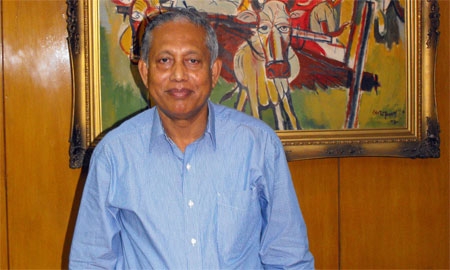After gaining its independence from Pakistan in 1971, the early Bangladeshi governments enforced a socialist economy upon its population with the nationalisation of all industries. The lack of an entrepreneurial culture resulted in a lack of engineers, technicians, managers and administrators. But by the mid-Eighties the government implemented policies aimed at encouraging private enterprise, investments and imports, and the Bangladeshi economy started to show signs of growth.
Today, the country's economy is not only strong, but growing rapidly: according to the International Monetary Fund (IMF) Bangladesh ranked as the 43rd largest economy in the world, among the Next Eleven, or N-11 of Goldman Sachs, with a gross domestic product of $269.3 billion in 2010. Growing at an average rate of 6-7% per annum, more than half the GDP now comes from the service sector while a large part of the Bangladeshi work force continues to be employed in the agricultural sector. More recently, the industrial sector of Bangladesh has begun playing a more important role in contributing to the country's economy with the textile and leather industries particularly becoming key players.
"PREVIOUSLY, BANGLADESHI PEOPLE WERE MORE INTERESTED IN TRADING BUT GRADUALLY WE ARE MOVING TOWARDS INDUSTRIALIZATION."
MR DILIP BARUA,
Minister of Industries
|
Bangladesh has also become a leading player in the production of electronic goods and motor vehicles. At present the country manufactures large amounts of auto-rickshaws – three-wheeled vehicles with Honda engines that are widely used all over South East Asia. The Bangladeshi automotive industry has a number of large manufacturing plants throughout the country producing Mitsubishi Pajero, Hino bus and Tata bus, as well as a number of different motorcycles. TagAZ, a Russian and South Korean car manufacturer recently announced that their third factory will be opened in Bangladesh next year.
“Previously, Bangladeshi people were more interested in trading but gradually they are moving towards industrialization. Now, Bangladesh is in a transitional stage to move towards industrial business from trading. Our honorable Prime Minister is very concerned about this matter with a visionary outlook towards the concept of industrialization.” said the Bangladeshi Minister for Industries, Mr. Dilip Barua, recently.
Mr. Barua is confident that Bangladesh can compete with international industry.“Bangladeshi people are very efficient and they have a bright future. They are able to make cars, ships, and electronic goods very efficiently and they will prove themselves successful in the development of every sector.”

0 COMMENTS